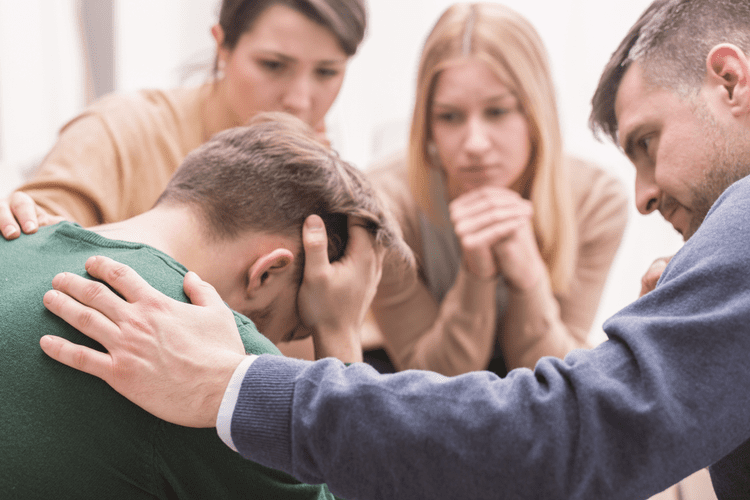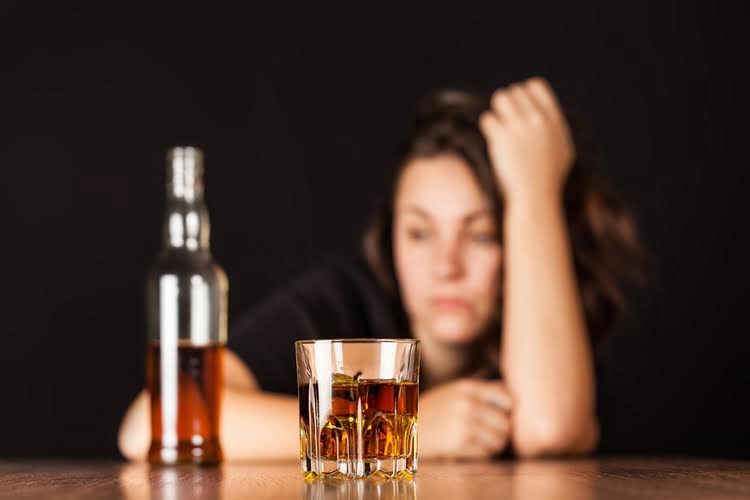Content
- It can trigger dark circles.
- NOW WATCH: A brain scientist explains why you black out when you drink too much alcohol
- Alcoholism: signs, causes, and treatments
- How to reduce the effects of alcohol on your skin:
- How Alcohol Consumption Affects Skin Health
- Alcohol exacerbates inflammation.
- A lot happens to your skin when you cut out alcohol.
Anti-age guidelines, and be persistent and consistent, and improvements will follow shortly. Richards suggests you choose a low-sugar beverage, which excludes some wines you might have thought to be healthier options. Pairing alcohol with a sugary mixer is like a double-whammy for your skin, as excess sugar consumption is linked with high levels of inflammation, according to a 2018 study. Camp adds that dehydration from alcohol can have the effect of “skin tenting,” which can make your complexion appear more aged and less supple. According to Centers for Disease Control , moderate drinking means up to one drink per day for women, or two drinks per day for men.

Look for a good face moisturizer with ingredients like hyaluronic acid , ceramides, or lactic acid to rehydrate your skin and maintain your dewy glow. For many people, it’s not realistic or even desired to completely stop drinking. https://ecosoberhouse.com/ So, instead, aim for moderation and try to avoid heavy drinking or binge drinking. Researchers believe hangovers and symptoms after drinking too much alcohol may be related to increased inflammation and oxidative stress .
It can trigger dark circles.
“It would be best to avoid any cosmetic procedures such as lasers, injectables and peels for a few days,” says Aguilar. Dehydration might make skin more susceptible to laser burns and, the puffiness doesn’t allow your injector to work on your face’s normal state. Finally, when drinking, be sure to use a moisturizer so your skin will appear more even toned.
- You might be all too familiar with the telltale rosy flush that appears in your cheeks after a couple of glasses of wine or one too many vodka-sodas.
- Many of the long-term effects of alcohol on a person’s skin happen as a result of AUD.
- Treatments will vary based on the condition, so a person should speak with a doctor about the best treatment options for them.
A person should speak with a doctor or dermatologist to find the best treatment. According to DermNet.org, drinking large amounts of alcohol can increase a person’s risk of developing psoriasis. If a person drinks alcohol regularly, the short-term effects, such as dry skin and flushing, are more likely to become a persistent problem. “Over one year of not drinking alcohol, your liver will be healthier and better at detoxifying your body,” she said. “The healthier you are, the more beautiful your skin looks, so our skin will be more healthy and glowing.”
NOW WATCH: A brain scientist explains why you black out when you drink too much alcohol
Diuretics are substances that increase the production of urine, which dehydrates the body and, sadly, causes the skin not only to become dehydrated, but to look drier, feel less plump, and more easily show fine lines. We spoke to the experts about the effects of alcohol on skin, why drink causes these issues and how you can lessen the damage. Your nose might get red and stuffy or runny when you have a beer or a glass of wine.
- Do this by incorporating relaxing activities into your next morning—think yoga, breathwork, a walk outside, watching your favorite show, etc.
- Aside from being a little embarrassing, this is a sign that alcohol affects your circulation and overall skin health.
- After a night out on the town, your go-to remedy is to probably take a triple-shot of espresso, followed by a pint of water—desperate to wake up and rehydrate.
- From dullness and enlarged pores, to blotchiness, increased redness and puffiness – we’ve explored how breaking down alcohol in the body can trigger these skin side effects.
Although the classic ‘drinker’s nose’ was thought to be related to excess alcohol consumption, it has never been proven. In a case-control study of 175 people with rosacea and 145 people with normal skin, there was no significant difference in alcohol consumption between the two groups. All of these skin conditions may occur without any history of alcohol abuse. If you can make it into see a pro, she suggests a “hydrating facial with lymphatic massage to drain toxins and de-puff face.” Achieve similar effects at home with a gua sha self massage. From zapping skin of its moisture to slowing down the processes of cellular repair, alcohol can damage your complexion; studies have shown that even moderate alcohol consumption affects skin. Because cocktails often contain a mixture of syrupy drinks and alcohol, they can be loaded with sugar—and all that extra sugar could mean inflammation, accelerated aging, and acne.
Alcoholism: signs, causes, and treatments
If you’ve ever woken up with not only a headache and an egg sandwich craving after a night out, but a new pimple, puffy eyes, and a particularly dull, lackluster complexion, here’s why. In 2019 and has noticed a dramatic improvement in her skin, “I’m so much happier with my skin since I stopped drinking,” she said. “I used to spend a fortune on skin creams and facials, and they’d barely make a difference – but quitting alcohol, even in just the first couple of weeks, had a dramatic and instant effect on my complexion.” Whether you decide to cut down on drinking or completely stop, avoiding alcohol is inevitably going to be great for your skin. Dr Liakas explains, “Once one decides to stop drinking or cut down on the consumption of alcohol in general, it can have great positive impacts on your skin. The skin will look more hydrated, plumper and brighter.” “Alcohol is also well known for leading to fluid retention and puffiness across the face. Rosacea, a challenging chronic inflammatory condition of the skin is very commonly triggered and driven by alcohol.”

Skin cancer – drinking alcohol is often connected to cancers of the mouth and throat, but alcohol consumption is also linked to common types of skin cancers. The research suggests this occurs when drinking alcohol impedes the body’s ability to effectively repair cellular how alcohol affects your skin damage from the sun. Dr Ana explains, “Cocktails are extremely high in sugar levels leading to glycation.” The terrible news? Glycation is a natural process in the body in which sugar molecules attach themselves to proteins including collagen and break them down.
How to reduce the effects of alcohol on your skin:
Rosacea affects around 16 million Americans and is characterized by redness across your cheeks, chin, forehead and nose, though can spread to affect your ears, scalp and chest. With time blood vessels appear in rosacea, so it is no surprise that alcohol can exacerbate the problem. However, if left untreated, excess tissue grows in the form of bumps across affected areas, which can have a significant impact on your confidence and self-esteem. Sufferers usually find that red wine is most likely to trigger flare ups and as just a single drink is often enough to bring on symptoms, avoiding alcohol altogether may be necessary to prevent lasting skin changes. While heavy drinking is a risk factor for cancers that affect your mouth and digestive system, you may not know that your alcohol intake can also influence your risk of skin cancer.
- We offer medical support, regular coaching sessions, prescription anti-craving medication, and more—all from your smartphone.
- Taking a non-sedating antihistamine pill about an hour before drinking might prevent some of this redness,” Dr. Shainhouse explains.
- Have you ever woken up the morning after having a few too many drinks to a dull, flaky complexion?
- So next time you’re perusing the menu on a night out, bear in mind that a Margarita is the worst offender as it contains both sugar and salt, both of which can leave skin puffy.
(6)